Empathy and decoding of this concept. Argumentation of the need to live with the heart of the young generation. Ways to develop empathy in children. Empathy in children is a developed ability to feel people's problems and rejoice at their successes. Kids can only demand satisfaction of their needs, even to the detriment of the interests of their own parents. Therefore, it is necessary to understand the question of how to develop their desire to sympathize with another person.
Why you need to develop empathy in a child
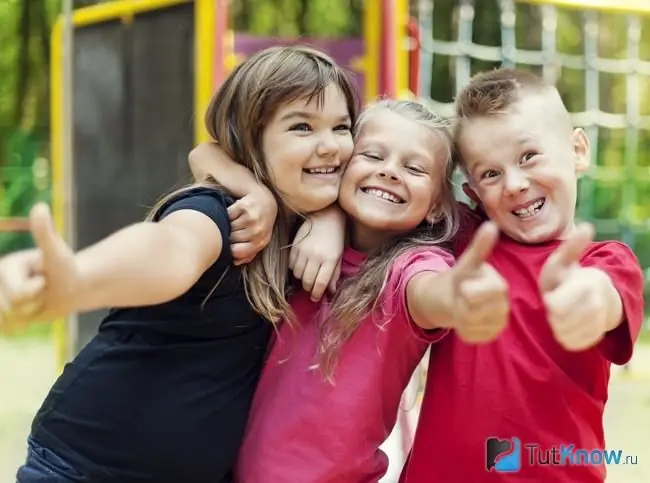
In this case, it is necessary to distinguish between the emergence of the term itself and its official sounding. When analyzing the first option, it is necessary to recall the experimental psychologist Edward Titchener, who took the German word Einfuhlung as the basis of his conclusions. He borrowed it from the aesthetic philosopher Theodor Lipps, who established himself as a theorist in the field of the impact of art on humans.
Later, the famous psychoanalyst Sigmund Freud in 1905 made the first clear definition of the sounded concept. In his opinion, empathy is a process that occurs in the course of socialization of a person with identification in the form of a child's imitation of a positive example of adults. A contemporary of Sigmund Freud, the Swiss psychiatrist Eigen Bleuler, considered such a phenomenon as an instinctive consonance of children with the environment that surrounds them.
Some people confuse empathy with empathy. However, there is some difference between these concepts. With empathy, the child empathizes with any psychological state of his peer or adult.
Many parents think about the question of the advisability of forming this model of behavior in their child. As an argument for the correctness of this decision, psychologists cite the following arguments:
- Developing positivity … It would never occur to grown-up children who know how to empathize to see the world exclusively in black tones. They will believe in themselves and their future, without dwelling on the troubles in the present.
- Formation of a tendency not to judge … An empathic child will always understand the person who stumbled. Having already become a special adult, he will not criticize other people's actions, but will follow his own behavior.
- Increased attention from people … A successful person is always surrounded by many acquaintances who respect him. The empath child becomes popular over time because people are drawn to those who understand them.
- Developing listening skills … Some skeptics consider this ability an unnecessary formality. In their opinion, you need to be able to speak, defending your point of view at any cost. However, practice shows that the one who knows how to listen, achieves a lot in life.
- Establishing contact with peers … Empathic children know how to get away from any conflict that often arises in a team. Even bullies rarely provoke such a child and even strive for friendship with a person who understands everyone.
- Getting good results at school … The same aspect applies to studies in higher education institutions. Empathic children never conflict with teachers and carefully study the material that teachers present to them.
- Emotional intelligence development … According to experts, a high level of EI allows a small person to become in the future a wise leader, a qualified psychologist, a successful politician and a talented teacher.
- Setting a landmark into adulthood … A child who is sensitive to the experiences of the people around him learns from them to correctly understand the laws of life. Psychologists say that empathic children mature emotionally earlier and tend to think in an adult way in most cases.
Stages of empathy formation in children
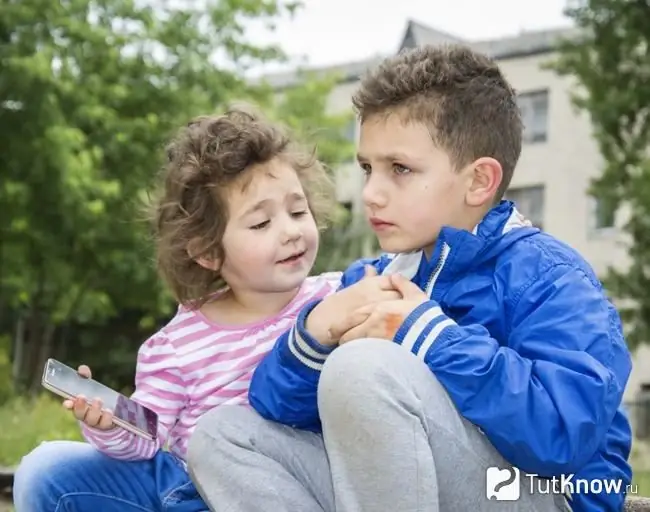
In solving each issue, it is important not to miss the moment when the personality of the child can really be corrected. The development of empathy in children involves several stages of its formation:
- From birth to 4 years … During the sounded period, the baby begins to learn to analyze his emotions. At the same time, at the initial stage, he is able to understand and foresee the feelings of people. At the age of a baby, he reacts with his violent reaction to the cry of another baby at the level of "emotional contamination." However, after the little one utters his first words and actively learns the world, one can already assume that he has some intuition regarding the emotions of the people around him. He begins to feel those moments when a person next to him is happy or upset.
- 4-7 years old … In this period of the formation of the child's personality, it is already possible to state the fact that he begins to become emotional in relation to the people around him. Even not knowing how to properly feel sorry for a crying friend or sincerely appreciate his joyful moments, a grown-up baby is already able to show empathy.
- 7-9 years old … At this age, children are already able not only to assess the moral state of another person, but also to support him in important life situations for him. On a conscious level, they can understand their soul mate in the moment of her despair and sincerely rejoice at her success.
The Japanese are of the opinion that children are raised exclusively up to three years old, and then their behavior is corrected. At the age of 10, the child is already entering early adolescence. Until this time, it is necessary to engage in the development of such a concept as empathy. Otherwise, it will be difficult to cultivate empathy in your children if they already have selfishness.
Psychologists distinguish three components of the process in which empathy develops in children:
- Getting your own experience … If from childhood you do not see with your own eyes how human relations develop correctly, then there can be no talk of sympathy for other people. In this case, the parents are fully responsible for the upbringing of empathy in the child. They must show by personal example what empathy is.
- Analysis of your own feelings and emotions … This stage implies the comprehension of the inner "I" no longer at a subconscious level, but quite concretely. The child must understand how he feels in relation to the world around him and what place he assigns to himself in it.
- Awareness of the other person's feelings … The final stage in the formation of empathy in children is the most important event. This process cannot be done without the help of adult mentors. They must teach the child to feel the emotions of people and empathize with them.
All three voiced stages imply parental control over the behavior of their son or daughter. Children should gradually enter the world of vivid emotions under the sensitive guidance of adults they trust.
Psychological tips for developing empathy in a child
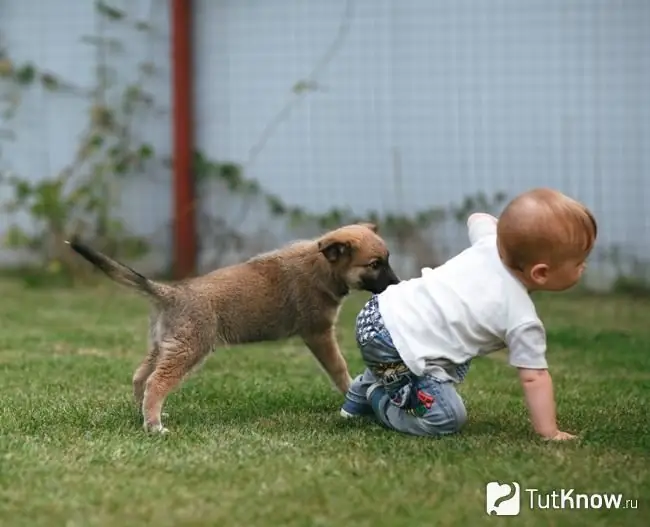
In this matter, experts recommend that parents be patient. It is much easier to educate a child to be industrious and accurate. Empathy refers to the ability to hear with the heart, which is not given to every person.
Psychologists have developed the following tips for parents who want to grow out of their child a personality with a fine mental organization:
- Educating empathy with animals … At the first signs of aggression in a baby, it is necessary to direct his energy into a peaceful channel. Experts say that the contact of a child with a representative of the fauna develops in the baby a sense of responsibility and empathy for all living organisms. Especially good in this case are dogs that are distinguished by their devotion to the owner and easily make contact with children. Although cats demonstrate their independence, they can also become attached to their owner. If it is impossible to keep a large animal at home, it is recommended to have a hamster, turtle, parrot or fish. At the same time, it is important to invite your child to make friends with a new pet, give him a nickname and take care of him. When an animal is sick, it is imperative to involve a son or daughter in taking care of it.
- Focusing the child's attention on important points … Parents should become wise mentors of their child and correctly coordinate his consciousness. To develop empathy, psychologists recommend offering the child to feed stray animals and build a bird feeder in the yard. At the same time, it is necessary to discuss the question of how difficult it is for them in the winter season. Together with your child, you can collect parcels for children in orphanages, focusing on the importance of mercy in people's lives. If, on the playground, parents with their child saw one of the kids fall and cry, this situation should be discussed. He hit, it hurts him very much, have pity on him, offer to play together - the main phrases that should be voiced to the child.
- Discussion of fiction … When reading fairy tales or poems, it is recommended to analyze each situation. If we take, for example, the work of Ershov "The Little Humpbacked Horse", then in it you can really find many topics for consideration. During the reading, one should stop and ask questions such as "Was it offensive to Ivanushka that he was called a fool?", "Why did the magic horse help the main character?" and "What did Ivanushka feel when he received a new order from the evil tsar?"
- Tactic training … Sometimes a word can hurt another person so painfully that he will remember the insult all his life. Toddlers do not always understand that some things are not said aloud. It is not necessary to scold them for this, because in this way empathy cannot be formed. It is necessary to explain to the baby in a calm tone that that aunt was very upset when he called her fat.
- Using correct expressions … You cannot talk for a long time with a small child, because he simply will not understand the essence of the claim presented to him. It is necessary to briefly point out to him his mistakes. The phrase “don’t torture the cat, it hurts” will more come to the mind of a mischievous person than a long lecture in the style of animal defenders.
- The possibility of compromise … Quite often, children exchange toys, which is very annoying for their parents. Their discontent is understandable, because barter is not always equal. However, there are some nuances in the child's desire to share the toy. If, in front of his eyes, one of the children breaks a favorite thing and cries bitterly, then there is no need to stop the impulse of your child to give the injured baby his trinket.
- Drawing analogies … It is necessary to invite the child to introduce himself to the one who has been offended, or to the injured animal. A similar method of exposure to children is suitable for offspring over 3 years old. At this age, they will already be able to describe their emotions from the proposed disturbing situation.
Exercises to develop empathy in a child
It should be noted that when choosing games for a child, it is necessary to take into account his age. Anything that will have a beneficial effect on a baby is not suitable for older children.
Games for toddlers from birth to 1 year
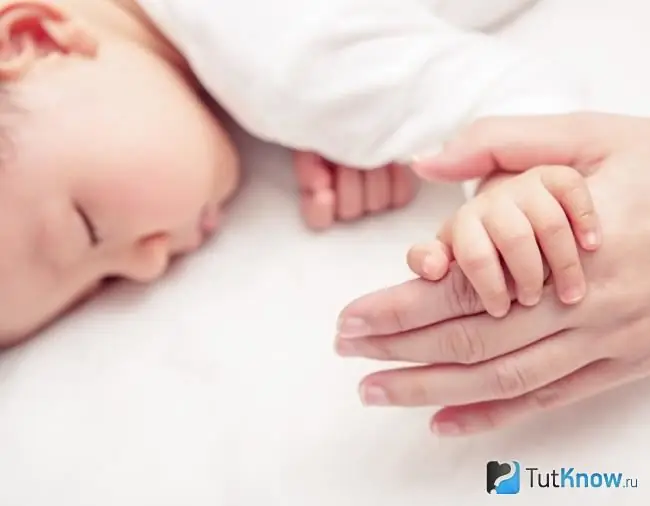
Some parents mistakenly believe that at this age it is only necessary to monitor the health of the baby. To some extent, this reasoning is reasonable, but psychologists hold a different opinion.
To form the foundations of empathy in a child in the first year of his life, the following classes should be carried out with him:
- Exchange of glances … Barely having time to open his eyes, the baby instinctively tries to focus his gaze on a human face. This desire must be used in order to establish contact with the baby. It is necessary to engage in mutual eye-to-eye glances more often so that the newborn, on a subconscious level, feels the love of his parents.
- Appeal to the crumb … Already on the 2nd day, the child clearly understands that they are talking to him. He reacts to this by clenching his fists, yawning and short sounds. Psychologists advise you to contact your baby as often as possible during this period.
- Skin contact … The best pediatricians in the world say that a child cannot be pampered by carrying it in your arms. It is with this kind of contact with the mother that the crumb begins to form trust in the world around him. In this case, massage of the back and heels, which must be done before the baby's bedtime, will not hurt.
- Imitation … Even by changing the same wet sliders, it is quite possible to teach a child to recognize different human emotions. You can arrange the dressing process in a tragic, humorous, grotesque and philosophical style. In this case, you must use all your acting skills.
- Exercise "Ku-ku" … When teasing a toddler, parents need to hide from him and then show up unexpectedly. At first, he will experience vivid emotions in the form of dad and mom leaving him and joy when they return. After a certain period of time, the baby will understand that dad and mom will never leave him.
Games for a child 1-3 years old
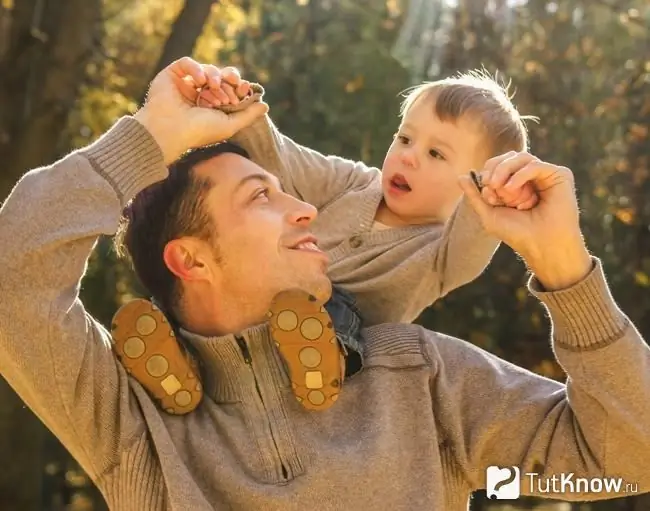
At this age, you can already begin to teach the child to distinguish the emotional state of people. To do this, it is recommended to perform the following exercises:
- Speaking emotions … There is no need to fence off your child with a stone wall. It is necessary to announce aloud about your physical and moral condition. At the same time, children should also describe in color the impressions they have recently experienced in response. Such word play should become a family tradition so that the baby understands the importance of the emotions of another person, who is also able to listen to him.
- Hide and seek … Unlike playing "Ku-ku", this fun consists in finding one of the parents or a lost toy. In this case, the child should be given hints in the form of "your machine is not able to find its way back, but it may be under the table." At the same time, the baby not only focuses on his own emotions, but tries, under the guidance of adults, to cope with distrust of the outside world.
- Emotion recognition … In this case, parents need to stock up on didactic material. Developments by N. Belopolskaya and M. Lebedeva in the form of books "Is Mom Satisfied?" and "The ABC of the Development of Child's Emotions."
Training exercises for children 3-5 years old
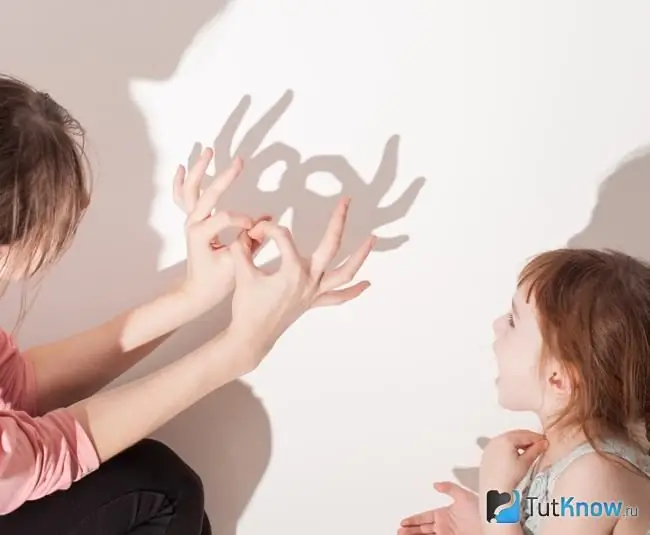
In this age interval, the time has come to enter the world of people and their relationships. Empathy in preschool children should be developed through the following games:
- "Guess Me" … With this entertainment, it is necessary to organize the presence of family friends and their offspring. The child needs to be blindfolded and asked to recognize friends by voice, based on their special speech differences. Such a game helps children not only have a great time, but also feel the voice of loved ones with the help of intuition and heart.
- "Smile differently" … This fun has great potential for developing empathy in a child. Little dreamers need to express with the help of their smile joy at the meeting, dissatisfaction with the resentment suffered, sympathy for the sick, encouragement for those in trouble.
- "Give an affectionate word" … When doing this exercise, parents should ask their child to say something nice about them. In response, mom and dad should be presented with a compliment. The essence of this method of influence lies in the fact that children will be able to understand how pleasant it is not only to feel kindness in their address, but also to give it in return.
- "Original greetings" … For the development of tactile contact with people in a child, psychologists recommend introducing such a game into the rule of any family. As a comic action, you can offer the baby to kiss his mother on the cheek at a meeting, shake hands with his father, rub his noses with his sister (brother), and “give five” with the older generation.
- "Ask a Question" … The essence of this method is that the child needs to learn about the event of interest from each of the family members. It is very important to point out to him that the answers will be different. During this entertainment, children should understand that even people who are dear to them may disagree. This will help them in the future not to criticize any of the potential opponents from scratch.
Empathy games for preschoolers
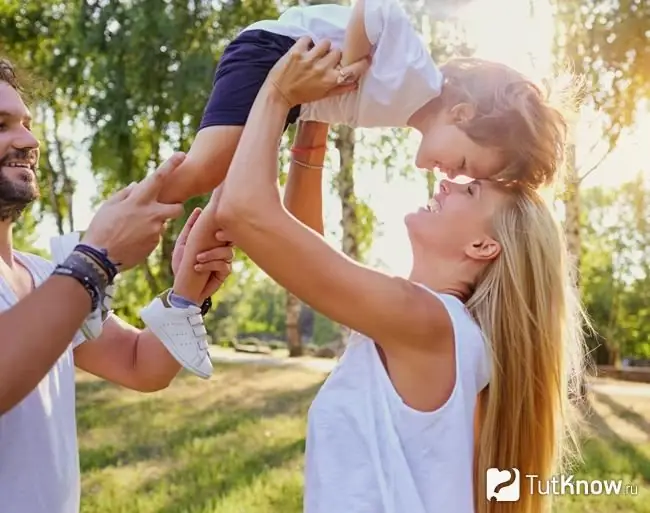
At the age of over 5 years, one can state the fact that a period of life has passed exclusively by one's own desires and needs. Now is the time to start the third stage of the development of empathy in the child as follows:
- "ABC of Mood" … This emotional and communicative game from N. Belopolskaya will help children from 5 to 10 years old to control their emotions and see the feelings of other people. 36 playing cards with different images will help the child to realize all the negative influence of such emotions in relation to other people as aggression and discontent. In doing so, children will have the opportunity to analyze such a feeling as joy.
- "Guess the mood" … During this game, the child needs, looking into the face of relatives and friends, to voice his thoughts about their emotional state. In response, he must receive a resolution on the correctness of his conclusions or their groundlessness.
- "Think like we are" … The essence of this exercise is for the child to put himself in the place of an object. The Christmas tree was cut down on New Year's - how is she? The flower was picked and thrown away - is it offensive to him? The cat was pulled by the tail - did it deserve it?
- "Virtual Gift" … Parents should invite their child to come up with a present for every person they know. At the same time, it is necessary to explain to the son or daughter why he chose this particular thing for a particular person.
- "Give magic" … You should constantly remind your offspring that he is capable of real miracles. We can say that his smile will help the grandmother to stop being ill, and helping around the house will make my mother smile.
How to develop empathy in a child - watch the video:

Cynics and nihilists view empathy as a manifestation of weakness. However, life experience shows that such an opinion is erroneous. People are drawn to those who rejoice in their successes and are always ready to help in difficult times. The main thing is not to allow some shameless persons to unnecessarily use the kindness of a person who knows how to worry and lives with his heart. When asked how to teach a child empathy, parents need to use the example of their own experience to prevent the fact that their child will grow up to be an egoist.






